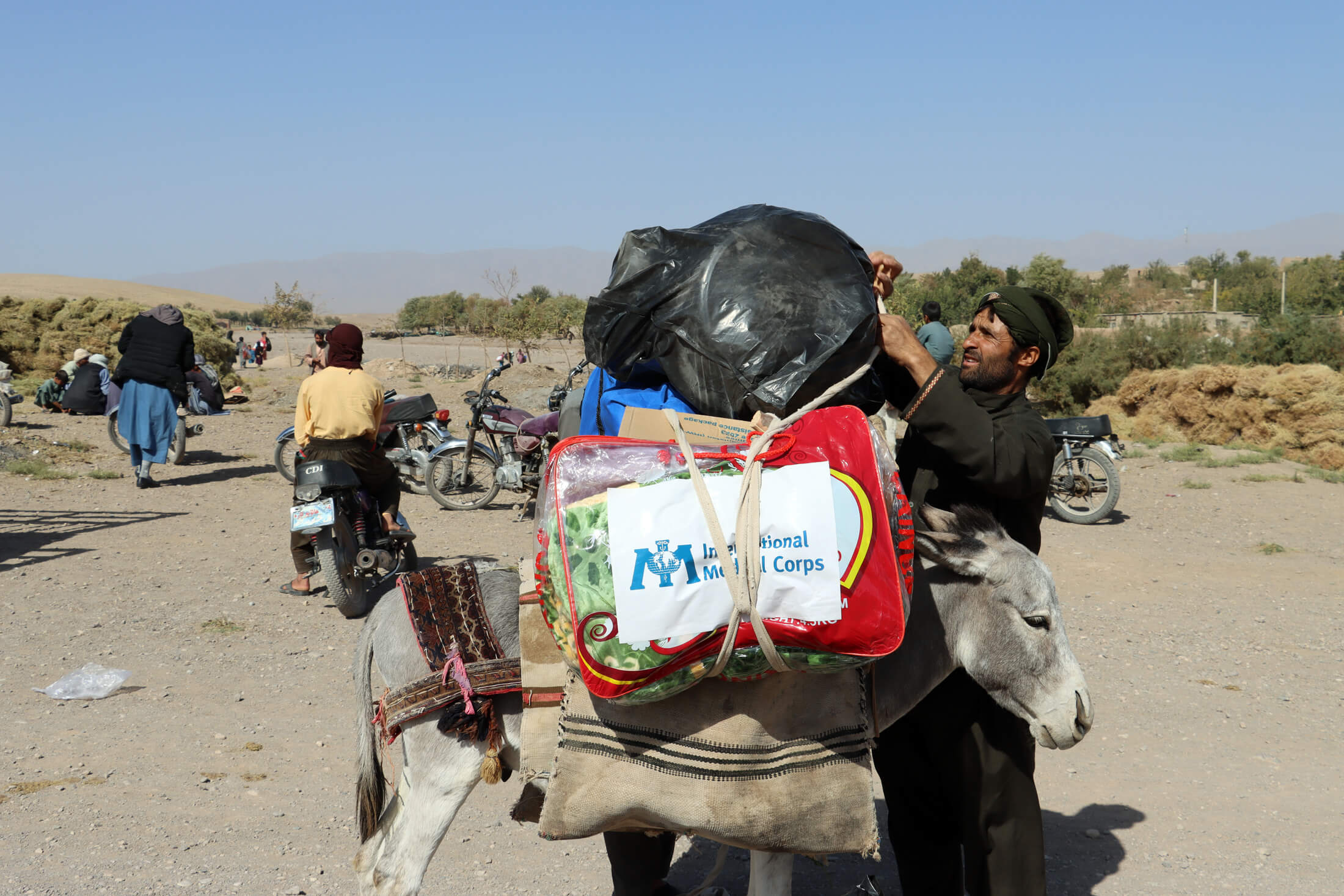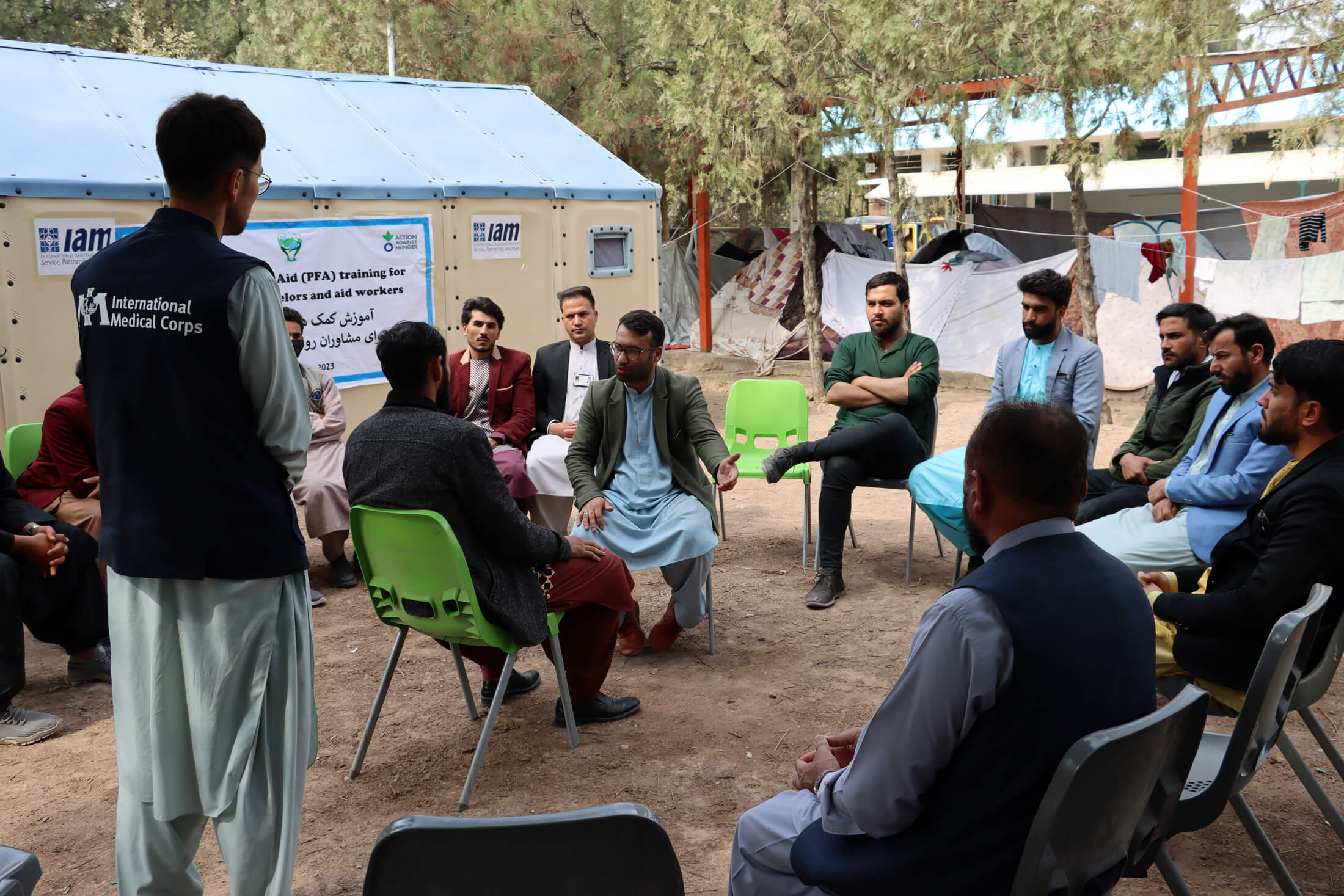In Herat province, Afghanistan, communities were already preparing for a harsh winter when back-to-back earthquakes devastated the area. The quakes —each around 6.3 magnitude— hit on October 7, 10 and 15, and were each followed by several aftershocks. The series of quakes leveled villages, buried families and left entire communities homeless. According to OCHA, nearly 1,400 people have died, more than 1,800 have been injured and thousands displaced. When our team visited the area, trauma, grief and anxiety permeated the air, and the mental well-being of these communities was very low.
International Medical Corps has been in Afghanistan since our founding in 1984, and—as we always do—we are responding to this disaster. In this case, we are providing winterization kits and mental health support to thousands of people whose lives have been upended by the quakes, and we will continue to work collaboratively to deliver relief to these communities.
Bringing Warmth As Winter Beckons
Qutbuddin, his wife and their two sons were displaced and living without shelter after their home was destroyed. Humanitarian agencies provided tents, food and cash assistance to earthquake-affected communities. Like many others in his community, Qutbuddin was desperate for warmth and hope, which International Medical Corps provided in the form of a set of warm, high-quality blankets. The comfort provided by these blankets not only shielded Qutbuddin and his family from the biting cold but also instilled a renewed sense of hope for the future.

“The blankets, more than just pieces of fabric, became symbols of resilience, community strength and the unwavering human spirit,” said a community leader who helped coordinate relief efforts. “Through the blanket distribution, our village has not only received physical warmth but also ignited a spirit of solidarity and determination, reminding everyone that—even in the face of adversity—kindness and support could light the way toward a brighter tomorrow.”
Mental Health Care Amid Loss and Trauma from Deadly Quakes
International Medical Corps staff arrived on the scene within 24 hours of the October 7 earthquake, collaborating with local emergency service groups. After assessing the immediate mental health needs of the affected population, our team set up safe spaces amid the chaos, providing privacy and a compassionate environment for people to share their experiences and fears.
The team initially focused on providing psychological first aid (PFA) after the earthquake, providing a framework for immediate psychological support, ensuring that survivors quickly received support and helping them to overcome the emotional stress of the earthquake.
Working with the International Organization for Migration and the World Health Organization, International Medical Corps provided PFA training for 15 member organizations of the Mental Health and Psychosocial Support (MHPSS) Technical Working Group in western Afghanistan. The training has equipped 150 participants with the skills and knowledge to provide PFA to earthquake-affected people who need psychosocial support.
Recognizing the importance of community resilience, our team will also help organize psychoeducation group sessions where community members will learn about normal stress reactions after traumatic events—helping to reduce the stigma of seeking mental health support.

Additionally, our mental health team is collaborating with local mental health service groups to set up long-term counselling and therapy programs. These programs will restore a sense of normalcy, help people rebuild their lives and provide ongoing support for people experiencing post-traumatic stress disorder and other mental health issues, focus especially on vulnerable groups such as the elderly and those who have lost primary caregivers.
International Medical Corps has a long history of responding to natural disasters in Afghanistan. Last year, we immediately responded to a deadly earthquake that struck Paktika and Khost provinces in Afghanistan. As the needs from these most recent earthquakes unfold, International Medical Corps will continue to provide support and services to those who need it most.